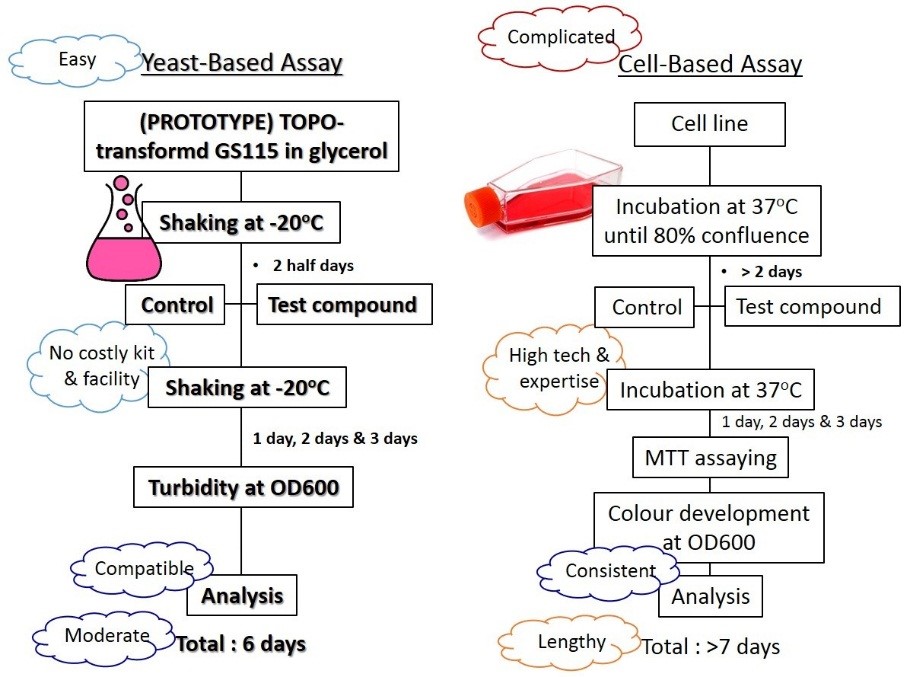The potential use of Pichia pastoris strain SMD1168H expressing DNA topoisomerase I in the screening of potential anti breast cancer agents
Breast cancer is cancer when breast cells occur to grow abnormally. The cancer is treated in a variety of ways, depending on the type of breast cancer and how far it has spread. Patients with breast cancer frequently undergo more than one form of treatment, which include surgery, chemotherapy, hormone therapy, and radiotherapy. Cancer chemotherapy, which is the focus of the present study, uses a drug to discourage cancer cells from developing or destroy the cancer cells in the human body. Cancer chemotherapy is highly toxic, particularly when a higher concentration of drugs is administered to patients. It is, therefore, important to look for more efficient compounds to reduce the toxicity of therapies while also deliver similar effects to current chemotherapy regimens. At present, search for potential anticancer agents requires a random, accurate mechanism with strategic and precise targets. For this reason, the initial in vitro high-throughput steps in the screening phase should be checked for the rapid identification of compounds that may serve as anticancer agents. The present study aimed to investigate the possible use of Pichia pastoris strain SMD1168H expressing DNA topoisomerase I (SMD1168H-TOPOI) in a yeast-based assay for the screening of potential anticancer agents. To do so, the cell density that indicated growth of the recombinant yeast without treatment was first measured by spectrophotometry. Subsequently, the effects of glutamate (agonist) and camptothecin (antagonist) on the recombinant yeast cell density were examined using the same method, and eventually, the effect of camptothecin on different cell lines was determined and compared to its effect on the recombinant yeast. The study showed that SMD1168H-TOPOI and the used of glutamate improved the growth of SMD1168H. However, the growth effect of SMD1168H-TOPOI was reduced by camptothecin administration. The result of the current study suggested that SMD1168H-TOPOI has similar characteristics to MDA-MB-231 cells. Thus, the yeast-based assay can be used to screen for more effective compounds that may inhibit the growth of highly metastatic breast cancer cells.
"This work is headed by Dr. Khoo Boon Yin from INFORMM, USM. Mrs. Noorizan Miswan (CCB) was one of the co-researcher"
https://www.spandidos-publications.com/10.3892/mmr.2019.10201
- Hits: 956